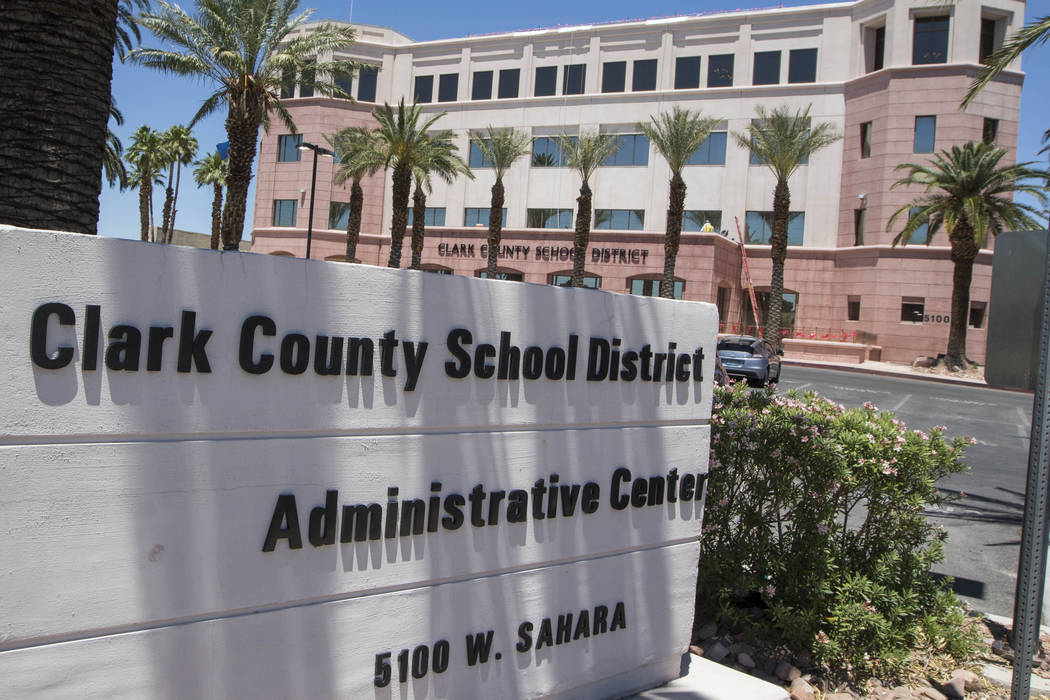CCSD budgeting hurts students in poorer areas, report says

The way the Clark County School District doles out money to schools creates an inequitable system that penalizes students in poorer neighborhoods, according to a report released Thursday that directed officials to come up with a fairer funding mechanism.
The report unveiled at a State Board of Education meeting highlighted what has been an open secret for years in the district: that schools in wealthier neighborhoods attract many of the most experienced and therefore highly paid teachers.
But State Superintendent Steve Canavero, who has authority under the state-mandated reorganization of the nation’s fifth-largest school district to oversee the budgeting process, said that the district needs to change the way it compensates schools for their teachers.
In the past, Clark has budgeted for teacher salaries based on the cost of an “average” teacher. So, if a school needed 15 teachers based on enrollment, it would receive 15 times the average salary for its budget.
But schools with higher proportions of more experienced teachers — primarily in affluent areas — blow through that portion of their budgets every year because their teachers earn more money, which is paid out of a central district account. That means schools with less experienced and lower-paid teachers come in under budget, thus keeping the teaching budget in balance but creating an inequitable system for students attending schools in poorer areas.
‘It’s all invisible’
“We’re funding schools that are serving at-risk students at possibly a much lower level than we’re funding schools in the affluent areas and it’s all invisible, we can’t see it,” state board Vice President Mark Newburn said of the report, adding it’s probably the first time such numbers have been brought to light.
Clark County School District spokeswoman Kirsten Searer said achieving equity is the district’s top priority.
“As this report acknowledges, addressing this issue could require more resources to go to some schools at the expense of others,” she said, adding the county School Board has identified the issue as a legislative priority heading into the 2019 session.
Canavero stopped short of providing a solution, noting that the report concluded that changing the system overnight would create chaos at some schools that have benefited under the current funding scheme.
He instead recommended the creation of a working group within the school district to design, develop and help implement a new funding model, based on the needs of the student who attend the schools rather than teacher salaries.
Under such a formula, for example, principals might get a lump sum of money based on their students’ specific needs and then hire teachers accordingly. Principals would have to balance the high cost of experienced teachers with the number of teachers they need to realistically staff the school.
Incentive program floated
State board member Felicia Ortiz wanted to know if an incentive program could be created to entice more experienced teachers to stay at schools in poorer neighborhoods rather than “migrate” to the suburbs, adding that extra money alone may not work.
“There’s only so far that more pay goes,” she said.
Ortiz and Newburn both questioned whether having Clark County oversee the working group was a wise idea, given that the district has long allocated money inequitably.
“This was a fairly open secret. They have lost the right to control the solution of this problem,” Newburn said.
Canavero indicated he’d be open to having outside members in the working group but would decide on the final makeup at a later meeting.
Contact Meghin Delaney at 702-383-0281 or mdelaney@reviewjournal.com. Follow @MeghinDelaney on Twitter.













